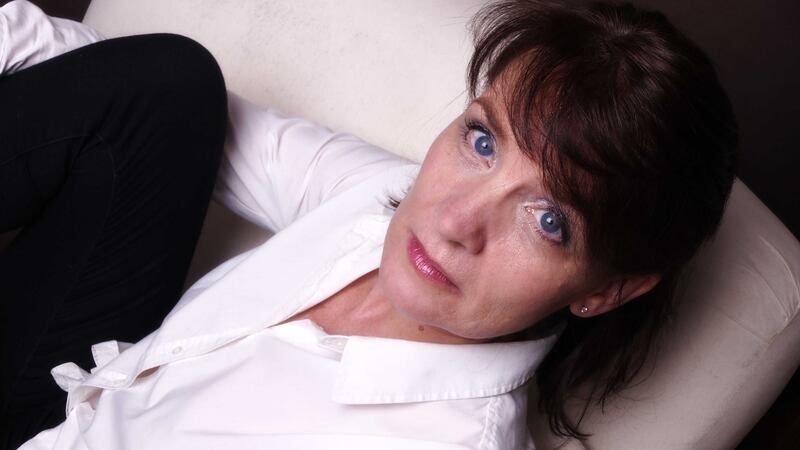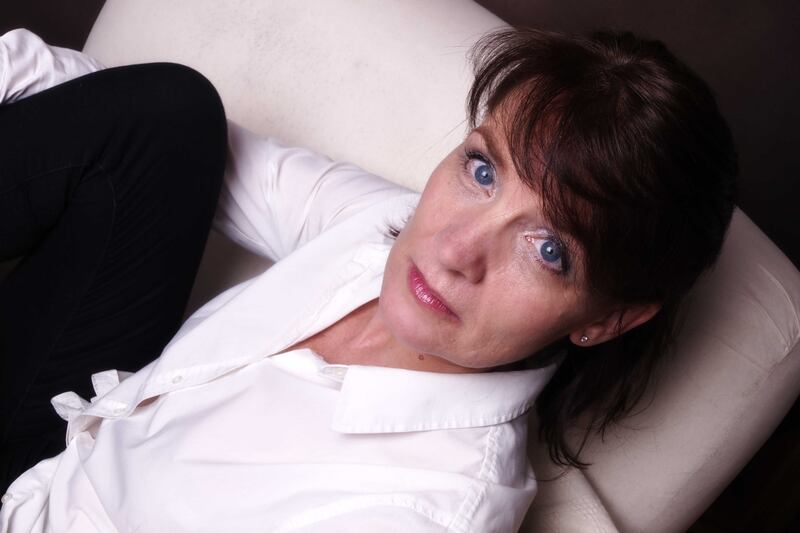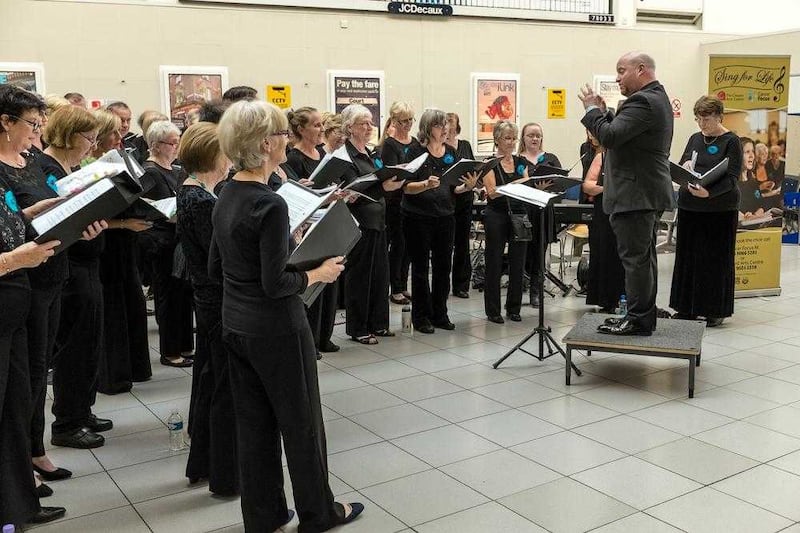Christine Hamill, author of B is for Breast Cancer and The Best Medicine, teaches Literacy and A Level Creative Writing at Belfast Metropolitan College. She talks to us about her journey - from penning her first book from a hospital bed, working in Bristol and Spain and illustrating how laughter really is the best medicine. As many young people think carefully about what to do next with their lives following their exam results, Christine offers some timely advice on your next step.
How did you end up as a writer?I always wanted to be a writer from the age of eight. I remember clearly reading a book one day in Primary 4 and thinking, I want to do that. I didn’t do it. Then, nearly forty years later, I was diagnosed with breast cancer and I thought, I can’t have cancer - I haven’t written my book yet. The clock was ticking. I took pen and paper into hospital with me and had finished my first book B is for Breast Cancer before treatment ended. That book is an urgent and honest and sometimes funny account of everything you go through when first diagnosed with cancer. A year later (when recovering from reconstructive surgery) I wrote my second book The Best Medicine - a comic novel for young people about a boy coping with life, love and… his mother’s cancer. The boy is mortified that people will be talking about his mother’s boobs. After I’d written both books, I didn’t know what to do with them. I set them aside and started on a third but my son pushed me to approach publishers. I braced myself for rejection, but the first agent I emailed responded positively two days later. I am with Eve White Literary Agency in London. I’ve heard people say you don’t need an agent - do it yourself. I don’t agree. A good agent is amazing.What does it take to be an author?No one’s going to want to hear this, but it takes discipline. Sorry, but that’s a fact. Yes, you need ideas and imagination. But I honestly believe that many many people do have ideas and imagination… but do they have the discipline to say to their friends, Sorry, I can’t come out/email/phone/facebook you tonight? As an antidote to all that solitary confinement – you do get to go out into the world and talk about your books. On Saturday September 10 I will be in Heaney country at Laurel Villa, Magherafelt talking about my book and a certain love for Seamus Heaney and the explaining why one of his poems means so much to the boy in The Best Medicine.Do you have a writing pattern?Well, I have a day job and I don’t care what anyone tells you - coming in from an extreme sport like teaching and having to do a tonne of marking does not lend itself to a nice evening of writing. During the holidays - I spend my entire summer holidays stuck in my room with the blinds closed, writing with no phone or internet for at about four hours at a time. What’s the best thing to do when you hit writer’s block?I tell my students: don’t stare at an empty page – write something, write anything, even if it is rubbish – you will eventually get passed the ‘rubbish’ and find the good. How did you get permission to use Harry Hill and his trademark image in The Best Medicine?I asked my agent Eve White for advice. She took my letter and emailed it to Harry Hill’s agent for me. Harry Hill very quickly said yes to being included in the book and he’s also on the cover. And best of all, he has written to me to say the book is ‘wonderful’. He has been amazing.What career ambitions did you have when you were young?That dream of being a writer in primary school didn’t go away. At university I still had it in sight - I would be that writer who wrote incredible award winning lyrical literary masterpieces… I would be feted… I never thought I’d write about cancer and I never thought I’d write comedy. The comedy has come as a wonderful surprise to me.Can you give us an outline of your teaching career, and how you got into it?I worked in the arts for several years after studying English Literature and Language at Queen’s University Belfast. Then I went back to Queen’s in the early nineties and did a Post Graduate Certificate in Education (PGCE). I followed that with a Teaching English As A Foreign Language course (TEFL) and went abroad to teach. That is an amazing benefit of being qualified to teach - you can travel and experience so much. I taught in Spain for a while, wrote an elementary English grammar for IBM Germany for a language course they were developing, worked in a college in Bristol, England and then came back to Belfast when my son was a baby. I returned to teaching when he went to school. I’ve taught English Literature, Media Studies, Literacy, and Creative Writing.What advice would you give to anyone looking for a career in writing or teaching?Develop a thick skin – you are going to take a few knocks along the way! In practical terms for teaching I would say a good degree and then a PGCE. As far as writing is concerned, I also advise a good English degree, it will allow you to read and read and analyse and talk about books. You can now also do English degrees that have creative writing modules in them, which is fantastic. If I were going for a degree now, I might choose that. What was the most challenging thing you had to overcome while teaching a class?The most challenging thing was the rigid routine. I was used to working in the arts. We might work until 11 on a Sunday night if there was a deadline but we could take breaks and phone calls when we liked. The first thing I remember about standing in a classroom was that I couldn’t actually walk out of the room if I wanted! Once the door closes, you are in there until the bell rings. I love teaching poetry, but it is a challenge because people think that they can’t understand it - they can, if they allow themselves. The boy in The Best Medicine thinks he doesn’t like or understand poetry too, until he reads a Seamus Heaney poem in class one day and it all becomes beautifully clear!Are you working on another book? If so, what can you say about it?Yes, I am working on another book. All I can tell you is that it will make you laugh and it will make you cry. B is for Breast Cancer (Little Brown UK 2014) and The Best Medicine (May 2016 Little Island) are available in good book shops and online.



